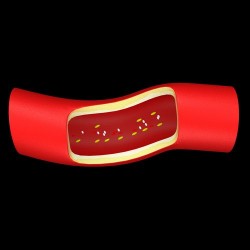 An IVC filter, also known as an inferior vena cava filter, is a medical device intended to prevent blood clots from entering a patient’s lungs and heart, but reports in recent years have suggested that these devices can cause serious damage.
An IVC filter, also known as an inferior vena cava filter, is a medical device intended to prevent blood clots from entering a patient’s lungs and heart, but reports in recent years have suggested that these devices can cause serious damage.
IVC filters (or inferior vena cava filters) are implanted in a patient’s main artery to prevent blood clots from moving into a patient’s lungs and heart, and over time, the clot is allowed to dissipate.
IVC filter lawsuits across the country are claiming that the medical device is dangerous to patients and that the risks may be more harmful than the clots.
According to adverse event reports received by the U.S. Food and Drug Administration (FDA) in the past ten years, hundreds of patients have suffered from punctured organs and filter migrations, which can cause major complications. Some of these inferior vena cava devices are manufactured by Bard Medical.
The FDA has responded to these reports against the IVC filters’ safety, recommending that the devices only be used on a temporary rather than permanent basis, and only if medications or other treatments are deemed ineffective.
IVC Filter Lawsuits
One IVC filter patient and plaintiff Clare A., who had an IVC filter device implanted in 2010, began experiencing major pain by 2013. Her IVC filter had migrated, turning sideways and eventually perforating her artery to puncture her pancreas.
Clare, like many who are implanted with IVC filters, was forced to undergo surgery to have the device removed and the puncture fixed.
After surgery, the Clare decided to file an IVC filter lawsuit, believing that her situation should not have happened. According to Clare and her lawyer, the failure rate of the Bard IVC filters is more than 50 percent, and so the device is simply unsafe. Clare’s lawyer, claims that this figure comes from Bard’s company documents.
Clare’s IVC filter lawsuit alleges that the device has caused her ongoing pain, even after surgery two years ago. Her IVC filter lawsuit, and many others like it, claim that Bard should take responsibility for their actions.
These lawsuits allege that Bard was aware that the design of their IVC filters had major problems, including reports of filter fractures and migration, but continued marketing and selling the product anyway, placing personal profit over patient safety.
Injured patients have filed lawsuits against a number of IVC filter makers, citing organ damage due to filter migration and breaks, as well as other serious complications. If you or someone you know has undergone complications due to retrievable IVC filters, you may have cause to file an IVC filter lawsuit.
Filing a lawsuit does not repair the damage, but can help compensate for the physical, emotional, and financial losses felt as a result of these devices.
In general, IVC filter lawsuits are filed individually by each plaintiff and are not class actions.
Do YOU have a legal claim? Fill out the form on this page now for a free, immediate, and confidential case evaluation. The attorneys who work with Top Class Actions will contact you if you qualify to let you know if an individual lawsuit or class action lawsuit is best for you. Hurry — statutes of limitations may apply.
ATTORNEY ADVERTISING
Top Class Actions is a Proud Member of the American Bar Association
LEGAL INFORMATION IS NOT LEGAL ADVICE
Top Class Actions Legal Statement
©2008 – 2025 Top Class Actions® LLC
Various Trademarks held by their respective owners
This website is not intended for viewing or usage by European Union citizens.
Get Help – It’s Free
Join a Free IVC Filter Class Action Lawsuit Investigation
If you or a loved one were injured by IVC filter complications, you may have a legal claim. See if you qualify to pursue compensation and join a free IVC filter class action lawsuit investigation by submitting your information for a free case evaluation.
An attorney will contact you if you qualify to discuss the details of your potential case.
Oops! We could not locate your form.












